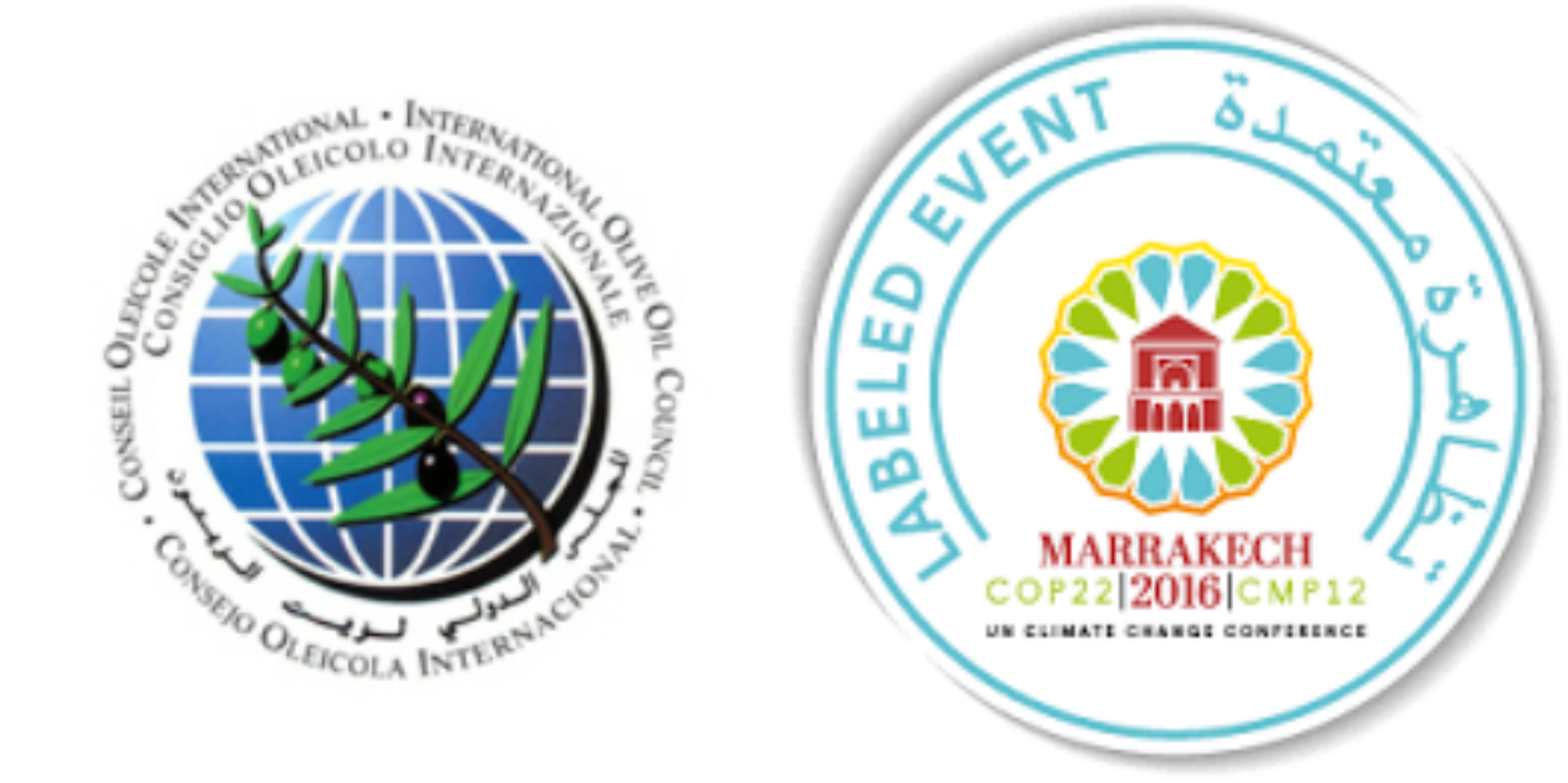The International Olive Council (IOC) participated in the 22nd session of the Conference of the Parties to the United Nations Framework Convention on Climate Change (COP22), which was held in Marrakech (Morocco) from 7 to 18 November 2016, and whereby the UN sought to adopt a framework for action against global warming.
For this event, the IOC invited all IOC member countries to participate in a conference on 16 November entitled “Olive Oil, the liquid gold helping to reduce greenhouse gas emissions”, at which three experts (University of Basilicata – Italy; IRTA – Spain and CO2 Consulting) took the floor alongside the IOC Deputy Director and the Head of the Environment Department.
IOC participation in COP22 was a unique opportunity to show the international community how, through the adoption of appropriate agricultural practices, olive trees can contribute to reducing greenhouse gas emissions.
During this conference, the IOC, through the presentations of recognised international experts, was able to highlight the corpora of scientific studies that indicate that olive growing has positive effects on the environment and that the adoption of appropriate agricultural practices helps to increase the capacity for atmospheric CO2 sequestration in permanent vegetative structures (biomass) and in the soil.
In recent years, the scientific community has undertaken and published a number of studies on the carbon sink effect of olive trees and the way in which certain agricultural practices can improve the environmental impact of this crop.A sink is any process, activity or mechanism that extracts greenhouse gasses from the atmosphere. These gasses include CO2, the concentration of which has increased exponentially in recent years and is the main cause of global warming.
Woody crops, such as olive trees, are particularly efficient, compared to other annual crops, in capturing atmospheric CO2 and storing it as carbon in organic matter. Furthermore, olive trees can be grown in areas with a rainfall of less than 450 mm, typical of the semi-arid Mediterranean climate, where the boundary of the forest spread lies. Olive trees can store as much or more carbon than these forests.
A scientific consensus has now been reached that olive trees have a positive carbon balance and that they have a real positive impact and offer a real “environmental service” to society.
No environmental communication standard has yet been recognised internationally to enable information on CO2 sequestration capacity to be presented as an emission balance. Existing standards indicate the impact of emissions in the process of production and in the life cycle of the product, but do not consider the CO2 sequestration potential of woody crops and of cases such as the production of olive oil.
However, the reality is that olive trees offer an extremely precious environmental service in the face of climate change.
According to studies published to date, while an average of 1.5 kg of CO2e is emitted into the atmosphere throughout the life cycle of the production of one litre of olive oil, the adoption of appropriate agricultural practices enables the olive tree to sequester approximately 11.5 kg of CO2 in the soil, resulting in a clearly positive balance of 10 kg of CO2. Furthermore, the increase of carbon levels in the soil improves the biotic biodiversity of the soil and the upper parts of plants and improves the rainwater storage capacity of the soil.
This is why the IOC considers that the environmental information communicated to consumers should include a mention of the environmental benefits offered by olive growing as a barrier to desertification and as a CO2 sink. From now on, olive growing should be seen as part of the solution.
In order to demonstrate the natural capacity of the olive orchard to fix atmospheric CO2 in the soil and in the woody structures of the olive tree, the IOC has disseminated a short video with the message that this Organisation wishes to share with the public: “Olive oil is good for your health and for the environment”.
.









